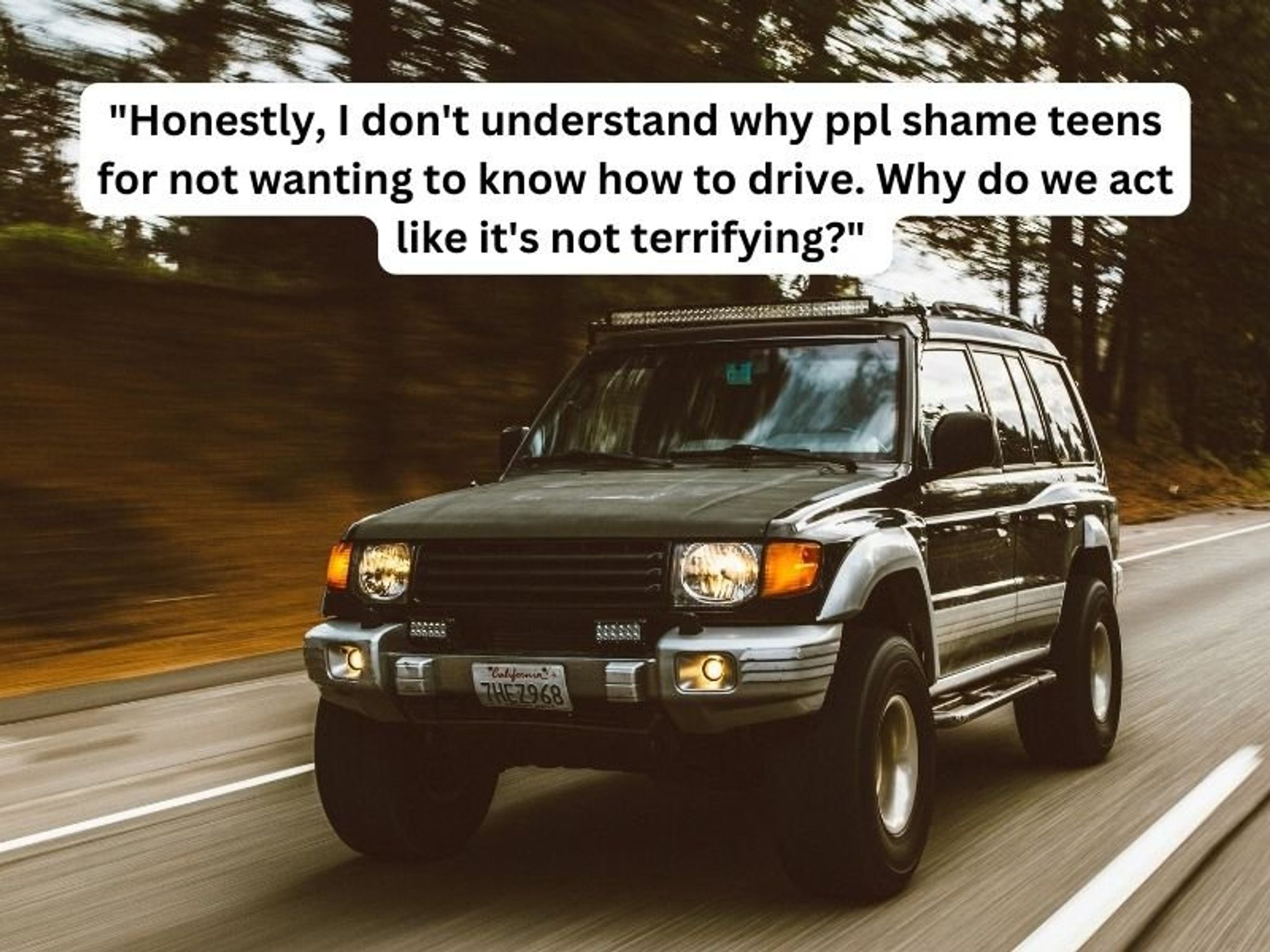
If it feels like you’re meeting more and more older teens and young adults who don’t have their driver’s license, it’s not your imagination. Gen Z has been much less interested in driving than previous generations, according to Department of Transportation data shared by USA Today.
In 1983, about half of 16-year-olds had driver’s licenses. By 2022, that number declined to about a quarter. During that same time, 18-year-olds with driver’s licenses dropped from 80% to 60%.
There are some explanations for what’s caused the drop. For one, thanks to video calling, young people don’t need to drive to see each other like previous generations did. Even if they do get together in person, improvements in public transportation and the proliferation of ride share offerings like Uber and Lyft have made it easier to do so without a car. Driving is also expensive, especially when you take the higher insurance premiums of young drivers into account. Gen Z has grown up more environmentally conscious than previous generations, and have grown up hearing about the blight of carbon emissions on the planet.
But in addition to that, there appears to be a sharp increase in anxiety around driving, and some experienced adult drivers are defending those fears as warranted.
According to a survey of non-driving teens by insurance comparison website The Zebra, nearly 1 in 4 said that they haven’t gotten a license because they are afraid to drive a car. While it’s easy to chock that up to the general increase in mental health disorders among young people, the fear of driving may be warranted.
In our car dependent society, choosing not to drive might seem like an odd decision, but there may be some wisdom behind it. As a user on X posted, “Honestly, I don’t understand why ppl shame teens for not wanting to know how to drive. Why do we act like it’s not terrifying?” and many people shared their experiences of car accidents really messing them up.
Statistically speaking, driving is the most dangerous thing most humans do, and Americans do it more than any other nation. But because we drive so often, the risk factor isn’t something we think about as much as maybe we should.
Young people learning to drive today are logically more aware of the risks than previous generations. Ask a boomer what they learned in Driver’s Ed and it’s a far cry from what Gen Z learns. Boomers didn’t even have required seat belts when they learned to drive. Kids today have not only grown up with seat belts but with high tech car seats and various booster seat iterations specific to their age and size. Those safety restraints keep us all safer, of course, but they are also a constant reminder of the dangers inherent in being in a moving vehicle. Being a passenger is one thing, but the responsibility of being the driver of that moving vehicle is entirely another.
Driver education courses have also evolved over the years to include graphic warnings about driving under the influence and distracted driving, which previous generations only got a fraction of. The idea is to scare teens who believe they’re immortal into understanding the danger that comes with doing those things, but for young people who are already prone to feeling anxious, seeing those terrifying scenarios can make the fear of driving worse. Most young people I’ve spoken to who have completed Driver’s Ed but aren’t in any hurry to get their license say that driving just makes them too nervous. Some of them have decided after a couple of years that they wanted their license, so it’s just delayed a bit. Others don’t have any plans to and seem to be doing fine with other ways of getting around.
Holding off on driving simply doesn’t need to be viewed negatively, especially when the risks of driving are real. Driving may be a valuable skill to have, but there’s no reason that skill has to be mastered by a certain age. If a good portion of Gen Z isn’t feeling it and choose to walk or bike or carpool or use public transportation instead, more power to them. Those choices are more affordable and better for the environment anyway, so let’s embrace the idea that choosing not to drive is a reasonable one and not judge or shame anyone for it.
